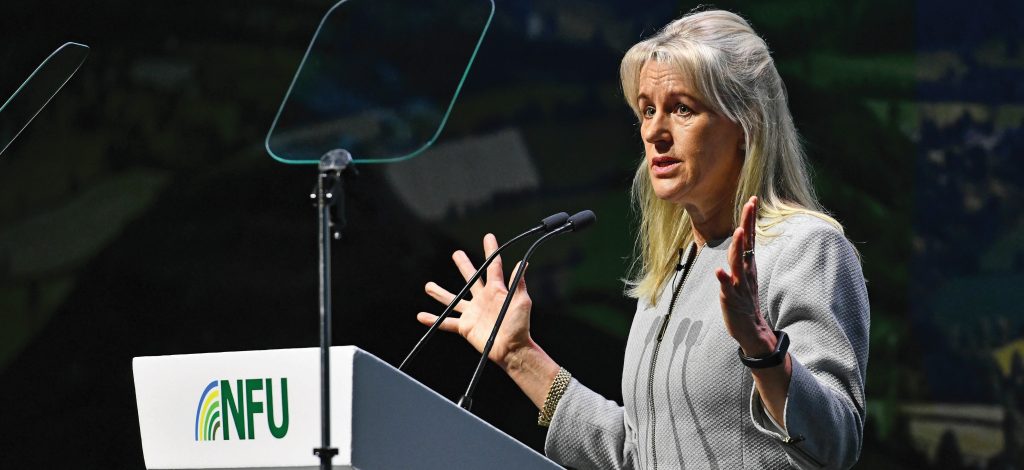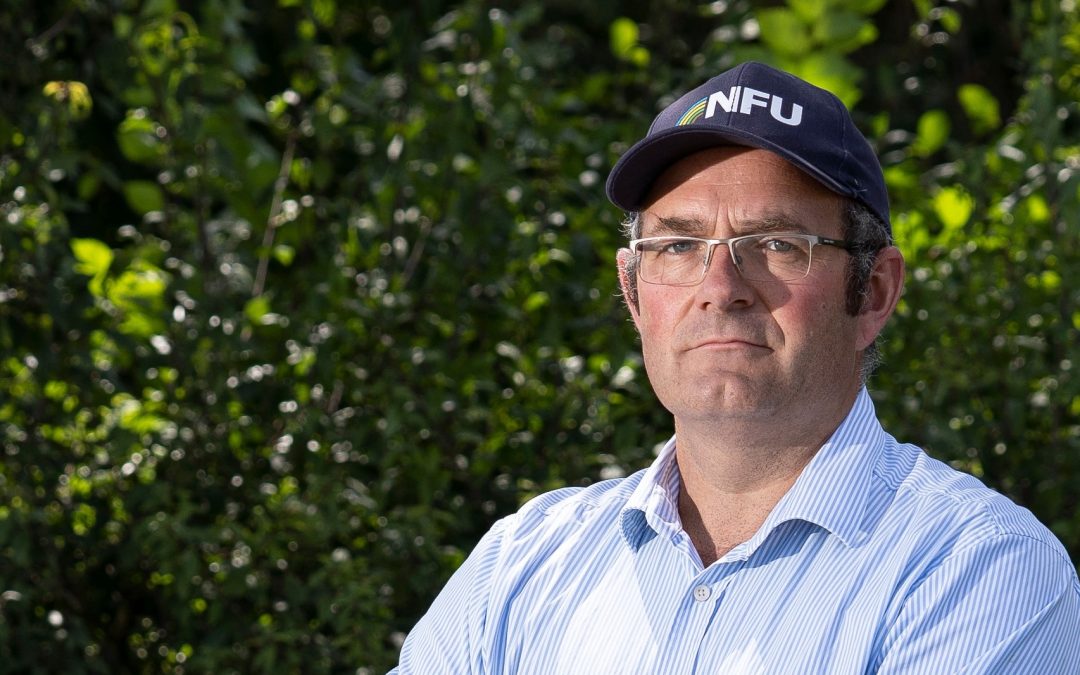The National Farmers’ Union (NFU) has called for Government action as it labels underspending from the Department for Environment, Food and Rural Affairs (Defra) a “kick in the teeth”.
As part of an annual report from the Farming and Countryside Programme, it was found that Defra had planned to spend £2,267 million in the 2023-2024 year, but had actually spent £2,136 million. For 2022-2023, it reportedly underspent £103 million and for 2021-2022 the underspending was £125 million.
NFU president Tom Bradshaw said: “We have repeatedly highlighted our concerns about an underspend and at long last we now have an honest admission of Defra’s failure. A £358 million underspend over three years is unacceptable and nothing short of a kick in the teeth to farmers and growers who have faced years of uncertainty and loss of income during the agricultural transition.
“Let’s be clear, this underspend hasn’t happened because the investment isn’t needed. It’s happened because the schemes to replace the Basic Payment Scheme (BPS) have not been completed in time and there are still many gaps and questions unanswered. We have flagged problems with the new Environmental Land Management (ELM) schemes from day one and, despite some improvements, there is still a big gap in spending as the money saved from the continued BPS reductions has sat gathering dust.”
Underspending to be carried forward
Bradshaw said that the NFU had pressed the need for the new schemes to be in place before reductions in BPS began for years, so as to avoid funding being left unspent “when farmers needed it most”. He highlighted how NFU had previously called for BPS reductions to be paused, and that farmers and growers now faced “record inflation levels and devastating weather events” as a result of a failure to pause BPS reductions.

He continued: “The risk this cumulative lost income poses to the viability of farm businesses, through no fault of their own, is well known. Recent research showed that, on average, upland businesses had lost 37% of their support payments under the 2023 scheme options, despite the public goods they deliver for the nation.
“In opposition, the Food Security Minister said that any underspend in agricultural funding should be rolled over into future years and asked for clarity from Defra about how this would be done. We now ask for the same thing: for Government to carry this much-needed funding forward so it can finally be put to its intended use – building resilience, investing in sustainable homegrown food production and delivering the Government’s legislated environmental targets.”
Government urged to increase agriculture budget
This comes as NFU calls on Government to value food security and “ensure important environmental delivery” by increasing the current agriculture budget.
As part of its annual Back British Farming Day, NFU asked politicians, the public, retailers, food processors and manufacturers to celebrate and champion British agriculture and its importance to the UK economy.
Speaking ahead of a breakfast reception for MPs in Parliament, Bradshaw said: “British farmers and growers are proud to produce the raw ingredients that underpin our essential food and drink sector, the largest manufacturing sector in the UK, worth a huge £148 billion, and employing more than four million people.
“But there are huge challenges. Over the past 18 months we have seen a collapse in farmer confidence, driven by record inflation, falls in farm income and a changing climate with unprecedented weather patterns delivering relentless rain which left thousands of acres of farmland under water.
“While in opposition we heard consistently from Labour that food security is national security. The Prime Minister, speaking at NFU Conference last year, pledged that Labour “aspires to govern for every corner of our country, and will seek a new relationship with the countryside and farming communities on this basis, a relationship based on respect and on genuine partnership”.
“We now need to see those ambitions realised. Today we’re calling on Government to truly value UK food security by delivering a renewed and enhanced multi-annual agriculture budget of £5.6 billion on the 30th October. This budget is essential in giving Britain’s farmers and growers the confidence they desperately need to invest for the future and deliver on our joint ambitions on producing more sustainable, affordable homegrown food while creating more jobs and delivering for nature, energy security and climate-friendly farming.”
Meanwhile, NFU Scotland has held budget discussions with Scotland Office Minister Kirsty MacNeill MP as well as Scotland Office and Treasury officials.
NFU Scotland president Martin Kennedy said: “We provided all those that we have met this week with clear evidence of all that a thriving farming and crofting sector in Scotland delivers in relation to food security, climate change and nature, rural communities and economic growth.
“There has been a real terms erosion in the value of current support at the same time farmers and crofters are being tasked with more in terms of policy objectives. We are making the crystal-clear case to the UK Government, Treasury and MPs for enhanced Government funding to enable us to deliver these vital outcomes.”

“Farming is part of the solution to decarbonising the UK economy”
The NFU has also said that it would like to see further investment in net zero policy framework and incentives as it aims to achieve a food chain that rewards climate friendly food production.
Bradshaw highlighted concerns regarding industry’s ability to reach net zero by 2040. The UK’s legal target to reach net zero is 2050, but the Conservative Government had made plans to do this by 2040.
NFU president Tom Bradshaw said: “Since the NFU declared its ambition that British farming contributes to the Government’s net zero targets, we have achieved much, building sector resilience plans and encouraging many farms to see climate resilience as an essential of good business.
“The NFU firmly believes that British farming is very much part of the solution to decarbonising the UK economy. With the right policy framework and incentives, a food chain that rewards climate friendly food production, and trade agreements that don’t undermine high domestic production standards, we can do much more.”

He continued: “The NFU will continue to work with its members, to carry on their climate friendly farming journey, to build more resilient, profitable, and sustainable farming businesses and secure the sector that grows the raw ingredients for UK agrifood; the UK’s largest manufacturing sector, worth more than £148 billion and creates jobs for more than four million people.
“We hope the new Government will treat UK farming as an ally for its climate ambitions. Its ambition needs to be backed by meaningful policy incentives and levers enabling the farming sector to improve productivity, incentivise baselining and better data and scientific evidence and to boost renewable energy and the wider bioeconomy. Net zero is never going to be an ambition farmers can deliver alone.”









